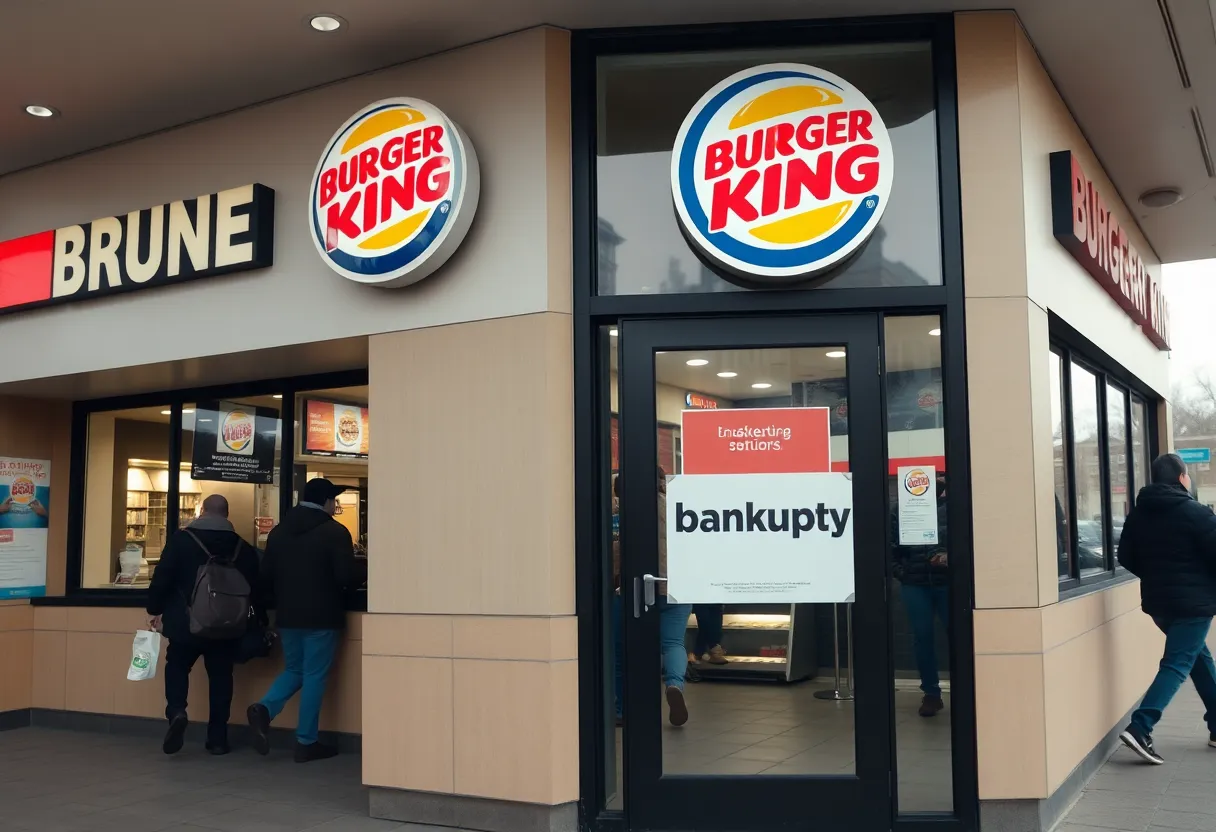News Summary
Consolidated Burger Holdings, a major Burger King franchisee, has filed for Chapter 11 bankruptcy, reflecting ongoing financial struggles in the fast-food industry post-COVID-19. The company, which operates 57 Burger King locations in Florida and Georgia, closed 18 stores earlier this year. Despite reporting $76.6 million in sales for 2023 and nearly $78 million in assets, it struggles with rising operational costs and declining revenue. Despite challenges, the Burger King brand remains resilient, with plans for ongoing investments by its parent company.
Florida – Consolidated Burger Holdings, a prominent franchisee of Burger King, has filed for Chapter 11 bankruptcy in a move that highlights the financial struggles experienced by the fast-food industry, particularly in the wake of the COVID-19 pandemic. The company oversees 57 Burger King restaurants located in Florida and Georgia.
The franchisee’s bankruptcy filing comes after it closed 18 of its locations earlier this year, reflecting the ongoing challenges faced by the business. Significant factors contributing to these challenges include a steep decline in foot traffic influenced by the pandemic, which has led to a drop in revenue. In its court documents, Consolidated Burger Holdings cited mounting financial challenges, including increasing rental costs and obligations related to debt service, occurring simultaneously with insufficient revenue decreases.
Financially, the company reported $76.6 million in sales for 2023; however, it also had a net operating loss of $6.3 million. The following year saw sales further decline to $67 million, coupled with an increased operating loss of $12.5 million. These figures underscore the financial hardships that have plagued the franchisee.
Despite entering bankruptcy, Consolidated Burger Holdings plans to continue operating its restaurants while actively seeking a buyer. In court filings, the company listed its assets at approximately $78 million. This strategic decision aims to maintain operational stability during the reorganization process.
In the broader fast-food landscape, many chains, including Burger King, have responded to similar economic pressures by introducing budget meal deals intended to attract customers, as food costs rise and foot traffic reduces across the sector.
Interestingly, despite the struggles of Consolidated Burger Holdings, the Burger King brand itself has displayed resilience. In the fourth quarter of the recent fiscal year, the chain reported a 1.5% increase in same-store sales, outperforming its competitors, who saw only a 1.2% increase during the same period. This suggests that while individual franchises may falter, the brand as a whole appears to be navigating the economic climate more successfully.
Further initiatives by the parent company, Restaurant Brands International (RBI), indicate a forward-looking approach. RBI is intensifying investments into remodeling its U.S. and Canadian locations, aimed at enhancing the customer experience and modernizing the brand’s image in an increasingly competitive market.
The situation faced by Consolidated Burger Holdings illuminates the broader economic difficulties impacting many franchisee operations, particularly in the fast-food industry. Businesses are constantly adapting to changing market conditions and consumer behaviors, particularly in an environment still reeling from the repercussions of the pandemic.
In conclusion, the filing for Chapter 11 bankruptcy by Consolidated Burger Holdings serves as a reminder of the ongoing struggles within the fast-food sector. It also highlights the need for adaptation and resilience as companies strive to navigate financial challenges while maintaining operational continuity and customer engagement.
Deeper Dive: News & Info About This Topic
- Bradenton News
- Miami Herald Business News
- Fast Company
- Business Observer
- Miami Herald Business Update
- Wikipedia: Burger King
- Google Search: Burger King bankruptcy
- Google Scholar: Burger King business challenges
- Encyclopedia Britannica: Burger King
- Google News: fast food industry 2023

Author: STAFF HERE PETERSBURG WRITER
The ST PETERSBURG STAFF WRITER represents the experienced team at HEREStPetersburg.com, your go-to source for actionable local news and information in St Petersburg, Pinellas County, and beyond. Specializing in "news you can use," we cover essential topics like product reviews for personal and business needs, local business directories, politics, real estate trends, neighborhood insights, and state news affecting the area—with deep expertise drawn from years of dedicated reporting and strong community input, including local press releases and business updates. We deliver top reporting on high-value events such as Grand Prix of St. Petersburg, Localtopia, and SHINE Mural Festival. Our coverage extends to key organizations like the St. Petersburg Area Chamber of Commerce and St. Pete Downtown Partnership, plus leading businesses in finance, manufacturing, and healthcare that power the local economy such as Raymond James Financial, Jabil, and Bayfront Health St. Petersburg. As part of the broader HERE network, including HEREJacksonville.com, HEREOrlando.com, HERETallahassee.com, and HERETampa.com, we provide comprehensive, credible insights into Florida's dynamic landscape.




